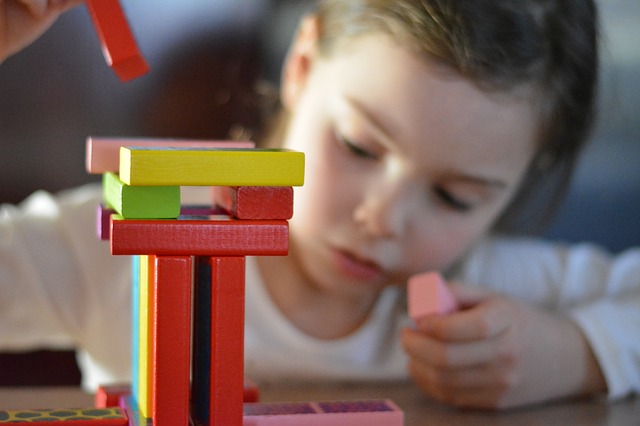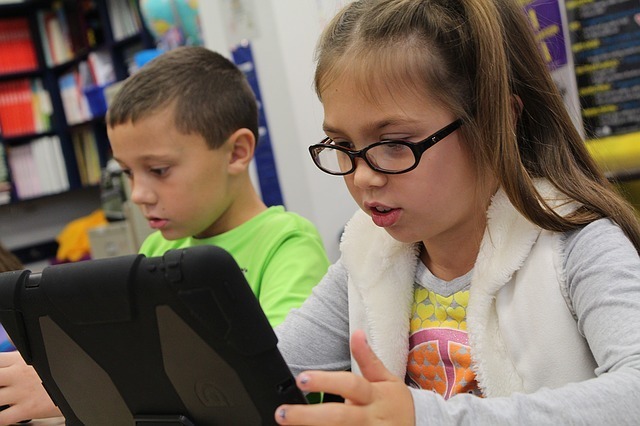
Adaptive learning platforms give teachers the opportunity to give their students the targeted instruction and assessment they need. They are, increasingly, an integral part of the early math classroom that aims to reach every student.

Children can, and should, learn math from a very early age. Developmental psychologist Herbert Ginsburg from the Teachers College at Columbia asserts that young students really enjoy learning math, especially when they are given the opportunity to manipulate objects, physically or digitally, in a fun and exciting way. Concrete math taps into...

Parents are barraged with advice and warnings from pediatricians, child development experts, and well-meaning family members regarding screen time. There is constant worry about exposing children to too much media in favor of other more worthwhile endeavors. Nonetheless, it is not uncommon to walk into a classroom and see ...
New reporting from the George Lucas Educational Foundation, Edutopia, points out the importance of assuring that the technology we bring into math classes fosters active engagement. Not All Math Technology Leads to Healthy Learning The report notes that, regrettably, in the midst of the STEM drive it’s possible for teachers to be commended for increased technology use alone, whether it supports healthy math learning or not. The updated 2017 National Education Technology Plan explains that in today’s classrooms many students are using technology as a tool for passive learning rather than engaging in active learning experiences that promote student agency.
Can little children really learn mathematics? Reporting from Teachers College, Columbia University, developmental psychologist Herbert Ginsburg says the overwhelming body of research conducted over the past 25 years reveals that – contrary to popular opinion – young children can learn both concrete and abstract mathematics. And what’s more, they often enjoy it. The research-based expectation is that early math education should involve topics more challenging than those usually taught. The leading professional organizations in the field recommend that early mathematics instruction cover the “big ideas” of mathematics in such areas as number and operations, geometry (shape and space), measurement, and algebraic thinking (patterns).
Research shows that early-grade mathematics, along with early literacy, is one of the most fundamental building blocks of future academic success. Unfortunately, while early literacy has received significantly increased attention in schools in recent years, studies show that early math has not received the equal treatment. And the proof is in the proverbial pudding–last year, just 40% of US 4th graders performed at grade level in mathematics. Outcomes are even worse among Latino and African American students, with just 26% and 19% scoring proficient or better.
A recent study from the University of Pittsburgh suggests that parents and early childhood educators should introduce numbers greater than 10 to help young children advance their math skills. The researchers focused on children who were either 5 or 6 years old. 44 mothers and their children were paired in a laboratory setting with age-appropriate toys. After each 10-minute play session, the children took a math assessment. The play sessions were taped and the research team counted then number of words spoken overall, then how many small numbers (1-5), medium numbers (6-10), and large numbers (greater than 10) were used.
Pre-K is a foundational year because, for most children, it provides their initial exposure to school and sets the tone for their educational career. Suzanne Bouffard, education researcher and author of the recently published book “The Most Important Year: Pre-Kindergarten and the Future of Our Children” says we need to take a look at how we do pre-K, not just whether we do it. Quality, she points out, really matters.
This fascinating interview with Psychologist Nora Newcombe delves into the relationship between spatial intelligence and success in STEM fields (math in particular), and also into the factors that lead to development of strong spatial reasoning skills. Scientists have long known that there was a correlation between spatial thinking and success in STEM, but in recent years researchers have increasingly been looking at causality. The upshot? Spatial intelligence is not hard-wired, it is developed through practice Children who play frequently with puzzles, blocks and other spatial toys tend to have better spatial reasoning ability Read it here: https://bold.
In a landmark study, analysis of large, nationally representative longitudinal data sets from the United States and England has revealed that an early understanding of fractions and division uniquely predicts how well a student will perform in algebra and higher level math later on – this after controlling for a wide range of relevant variables such as general intellectual ability, working memory and family income and education. How best can we use this information?
A recent longitudinal research study led by Tutrang Nguyen, School of Education, University of California at Irvine found preschool numeracy abilities to be the strongest predictors of later mathematics achievement, with advanced counting competencies more predictive than basic counting competencies. Examining the Standards The research team, including members from the University of Denver and Florida’s Saint Leo University, set out to investigate whether the kind of mathematical knowledge promoted by the various pre-established standards documents such as the National Research Council Mathematics Learning in Early Childhood: Paths Toward Excellence and Equity actually predict later mathematics achievement.
Researchers at the University of Delaware have recently released a groundbreaking study that suggests a that “preschool spatial experiences” as well as executive functioning skills “may play a central role in children’s mathematical skills around the time of school entry.” The team found that types of play that require children to visualize how objects fit together and which allow them to practice these skills via “spatial assembly activities” (play with blocks and puzzles) can actually help to develop these skills.